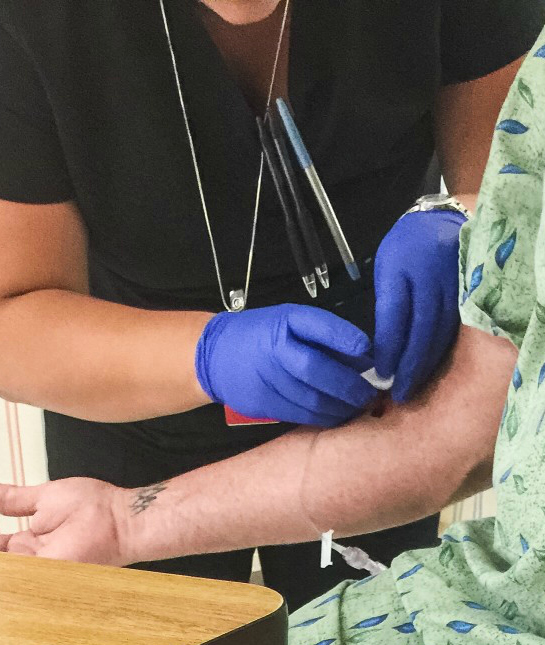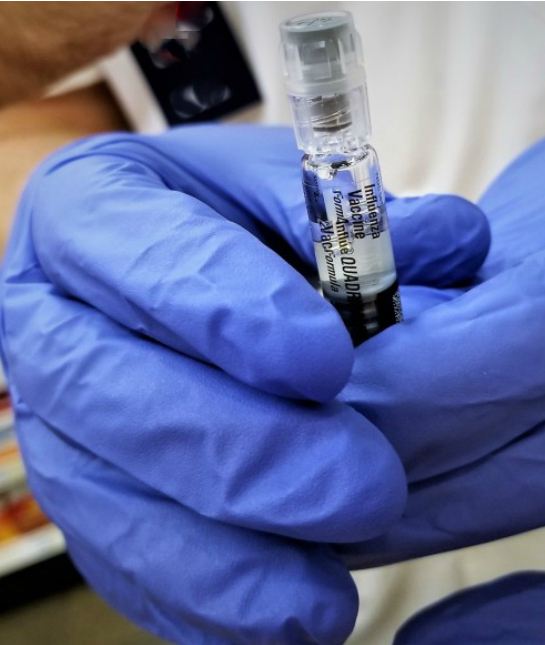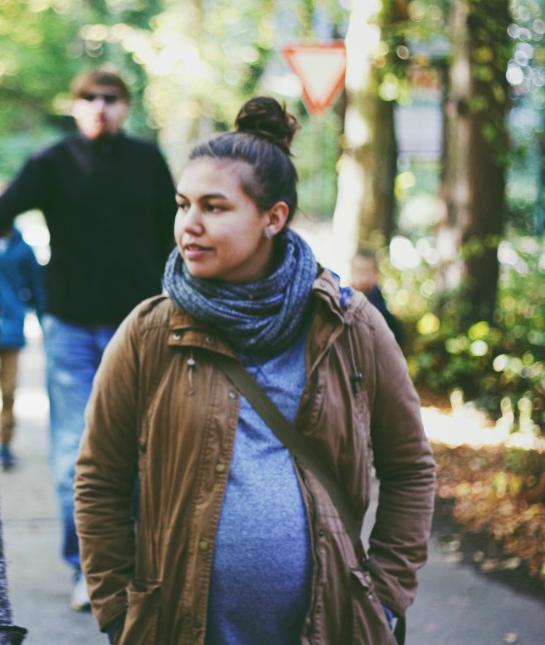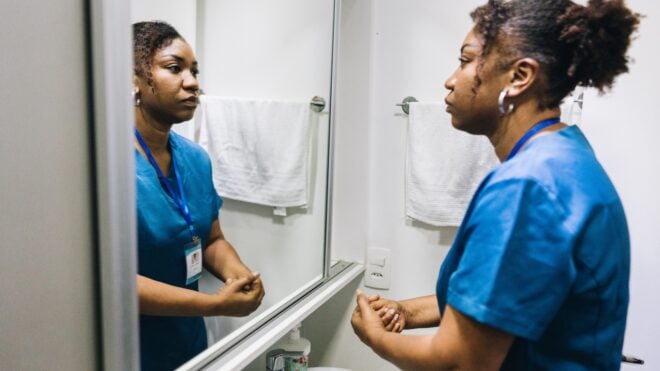Why People Should Get a Flu Shot

Millions of people get the flu every year and hundreds of thousands are hit so hard that they are hospitalized. Tens of thousands die from flu-related causes, and yet people often pass on an annual flu shot.
But did you know that getting vaccinated against the flu will not only lower your likelihood of coming down with the flu, but you'll also help keep it from spreading to others at work and in your community?
Side Effects

The flu shot can't give you the flu, because the virus in the shot is inactivated. However, there are some side effects from getting the vaccination, depending on how it's administered.
After a flu shot, you might experience soreness, redness or swelling where the shot was given, a low-grade fever and some aches.
If you were inocculated with the nasal spray, which contains a weakened virus, the side effects may be (for children) a runny nose and wheezing, headache, vomiting, muscle aches and fever, and (for adults) a runny nose, headache, sore throat and/or cough.
Delayed Effectiveness

The flu vaccine doesn't work right away. It takes about two weeks, according to the Centers for Disease Control and Prevention, for our bodies to develop antibodies, which protect us against flu virus infection if we are exposed. This is why getting flu shots now is better than waiting for an epidemic to hit the community. It's also why some people think the flu shot gave them the flu.
2 Doses for Young Kids

Children from 6 months to 8 years old who are getting a flu shot for the first time need two doses of the flu vaccine for it to be fully effective. If it's not their first time, one dose is all they need. If your child needs two doses, starting earlier is better: The CDC recommends waiting 28 days after the first dose to get the second dose. But even if you're starting out late, it's important to take young children in for shots, since they are particularly vulnerable to complications from the flu.
Under 6 months

Children under 6 months old should not receive a flu vaccine. Parents should be careful about contact with other children and sick adults during flu season. And they should make sure any caretakers or visitors have been immunized against the seasonal flu. They should also push hand-washing like crazy.
Only Needles This Year

The CDC is recommending against the nasal spray this year and instead asking health clinics and doctors to offer one of the several available kinds of injection vaccines.
Seriously, Every Year?

Yes, we need flu shots every year because the virus is always changing. Moreover, flu shots guard against several different strains of flu viruses, ones that international health experts have deemed will be the predominant flu virus of the season. Sometimes, the predicted strain is the one we're protected against; other times, it's another that is the more widely spread. However, even getting vaccinated against the less common one helps protect against other strains and may lessen the effects of whatever flu virus has made you sick.
Protection Beyond the Flu

There's some evidence that flu vaccines help people who have chronic health conditions. Flu vaccination has been associated with "lower rates of some cardiac (heart) events among people with heart disease, especially among those who experienced a cardiac event in the past year," according to the CDC. It has also been shown to reduce hospitalizations among diabetics and those with some lung illnesses.
No More Egg Allergy Worries

It used to be, those with egg allergies had to be observed for 30 minutes after their flu shot. Those with a severe allergy are urged to get their flu shot in a medical setting.
The amount of egg protein in flu shots is so minimal, a study found, that allergic reactions are a very low likelihood. Moreover, some shots are manufactured in completely egg-free conditions.
Manufacturing Takes Time

Just as we come out of one flu season, work toward the next season has already begun. Flu vaccine production starts six to nine months before the shots are sent out. But even this lengthy head start isn't enough to get all flu shots out before the season gets under way. There are a limited number of manufacturers in the US, and they start distributing them in late summer. The goal is to get all the doses out by early December, if not sooner. Because it's not always precisely known when health clinics and stores will receive their shots, flu shot clinics aren't always on community event calendars and health clinic schedules.
Yes, Pregnant Women Should Get the Flu Shot

Pregnant women are encouraged to get a flu shot to reduce sickness and keep from putting the pregnancy at risk.
Postpartum Protection

Moreover, some studies have found that Mom's flu shot during pregnancy reduced her baby's risk of getting the flu by half.
Flu Shots Often Fail

Truthfully, the annual flu vaccine protects not more than 60 percent of the people who receive them. And yet, they're still highly recommended. And some years, it's only 10 percent! And yet, even 10 percent of millions who get the shot is a significant number. The ability to predict which strain will be dominant, and to keep it from mutating after the manufacturing process, is why some groups are trying to develop a universal vaccine.
Life-saving history

The first flu vaccine was developed in 1938, and its first widespread use was on soldiers during WWII. So, while it isn't 100 percent certain that those who get the shot won't come down with the flu if exposed, a CDC study found that, in a nine-year period, 40,000 lives were saved, thanks to the flu shot. Moreover, a serious, worldwide pandemic has been avoided, likely thanks to the annual effort and investment in getting people to roll up their sleeves, squeeze their eyes shut and get the shot.




